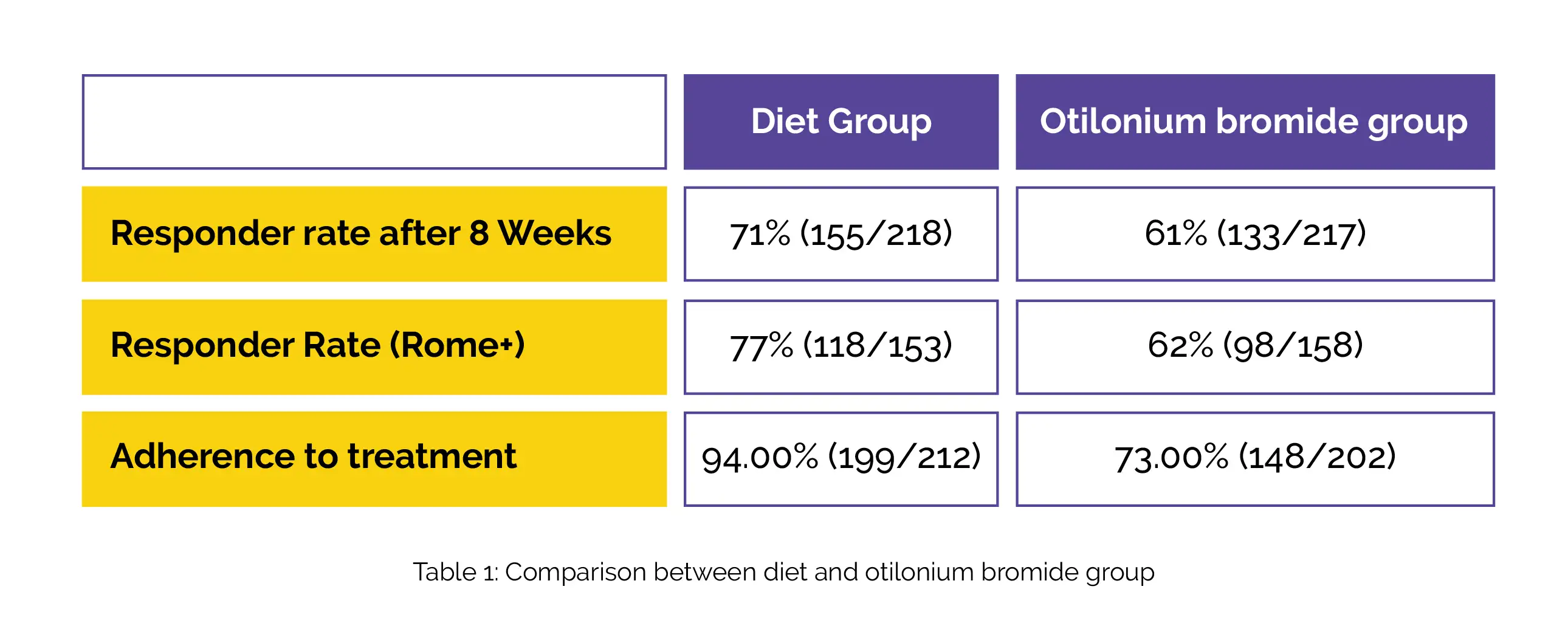Categories
Change Password!
Reset Password!


A FODMAP-lowering diet application, easily accessible on smartphones, outperforms the traditional spasmolytic treatment approach in improving IBS symptoms.
An 8-week use of a diet-based application (low fermentable oligosaccharides, disaccharides, monosaccharides, and polyols [FODMAP]) was superior to standard medical therapy in people suffering from irritable bowel syndrome (IBS), as deciphered from the findings of the DOMINO study. This smartphone application was linked to long-lasting responder rates and improvement of the IBS Symptom Severity Scale (IBS-SSS). Investigators sought to compare the efficacy of a smartphone application for a FODMAP-lowering diet versus otilonium bromide on IBS symptoms.
Primary care physicians recruited IBS patients who were then randomly assigned to receive either otilonium bromide (40 mg three times a day) or follow a FODMAP-lowering diet for 8 weeks. Participants were followed up for 24 weeks. The study evaluated the IBS-SSS and the proportion of responders (defined as those with an improvement of ≥50 points) in all patients and a subgroup meeting the Rome IV criteria (Rome+). Other factors assessed included therapeutic effectiveness, quality of life, depression, anxiety, somatic symptom severity (measured using the Patient Health Questionnaire [PHQ15, PHQ9]), therapy adherence, and predictors of response.
A total of 459 IBS-affected people (average age 41±15 years, 76% female, 70% Rome+) were randomized for the study. After 8 weeks, the responder rate was considerably greater in the diet group when compared to the otilonium bromide group, with the difference more pronounced in the Rome+ subgroup. Adherence to the assigned treatment was higher for the diet group when compared to the otilonium bromide group, as illustrated in Table 1:

Encouragingly, the higher response rate with the diet was evident even after 4 weeks [62% [132/213) vs. 51% (110/215)], and a sustained symptom response was observed during the follow-up period. Predictors of response were identified as female gender (Odds Ratio [OR]=2.08) for the diet group and PHQ15 score (OR=1.10) for the otilonium bromide group. Among primary care IBS patients, a smartphone application for a FODMAP-lowering diet demonstrated superior effectiveness in ameliorating IBS symptoms when compared to a spasmolytic agent.
Therefore, a FODMAP-lowering diet should be taken into consideration as the optimal first-line therapy for IBS in primary care settings. This research opens up new possibilities for more personalized and effective self-management options for IBS patients, empowering them to take control of their symptoms with the help of smartphone technology and dietary interventions.
Gut
Diet or medication in primary care patients with IBS: the DOMINO study - a randomised trial supported by the Belgian Health Care Knowledge Centre (KCE Trials Programme) and the Rome Foundation Research Institute
Florencia Carbone et al.
Comments (0)